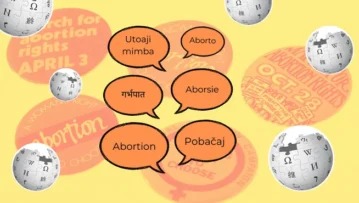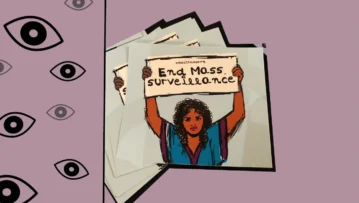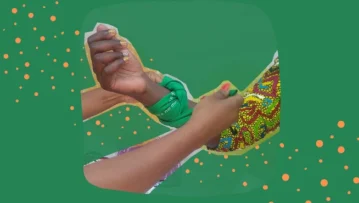
June was a busy month for the Decolonizing Wikipedia program and our #VisibleWikiWomen campaign. Early on, the Decolonizing Wikipedia coordinator Mariana Fossatti flew to San José, in Costa Rica, to participate in two gatherings. As an attendee and zine collaborator, she joined the Encuentro para imaginar infraestructuras de cuidado y medio ambiente (Convening to Imagine Infrastructures of Care and the Environment), co-held by APC (Association for Progressive Communications) and Sulá Batsú cooperative. After co-conspiring with feministas latinas and fellow techies, Mariana was at the RightsCon Summit, organized by Access Now, for a series of sessions.
- Derechos humanos y tecnología en Mesoamerica – una vena abierta en América Latina, a panel organized by Código Sur
- Art in the age of automatic production: regulation and social implications, promoted by Access Now
- Claiming the cyborgian dream in the AI paradigm: co-constructing an agenda for feminist digital justice, co-held by IT for Change and DAWN.
Our #VisibleWikiWomen photo booth — a practice we had already brought to previous convenings, like the Forum on Internet Freedom in Africa (FIFAfrica 2022) — traveled along. Feminist photographer Natalia Aguilar, documented dozens of women and non-binary participants; meanwhile, our campaign coordinator Sunshine Fionah Komusana held an online photo booth for those who attended RightsCon virtually. It was another opportunity to take pictures and document womxn and non-binary folks in the tech and digital rights space.
RightsCon is a big, international event, and attending the small but powerful feminist pre-event about the infrastructures of care was the best way to land at the conference. Código Sur’s booth space at RightsCon was another stand-out, and functioned as the feminist corner of rest and restoration at the event. It was designed with care and brought the attention of people working in projects rooted in communities and territories, rather than only tech and international policy.
The global nature of the conference was threatened because of the visa struggles of several Black and brown participants, and the event visibly lacked many participants from Asia and Africa, as well as other Latin American countries. Based on current and historical relations of coloniality between Costa Rica and North America, this shows how global authoritarianism influences and shapes how we can convene, and our mobility in Global Majority Worlds.
But, the experience energizing and fulfilling in many ways — connecting with feminists and activists from Latin America and meeting new folks through the #VisibleWikiWomxn photo booth!



